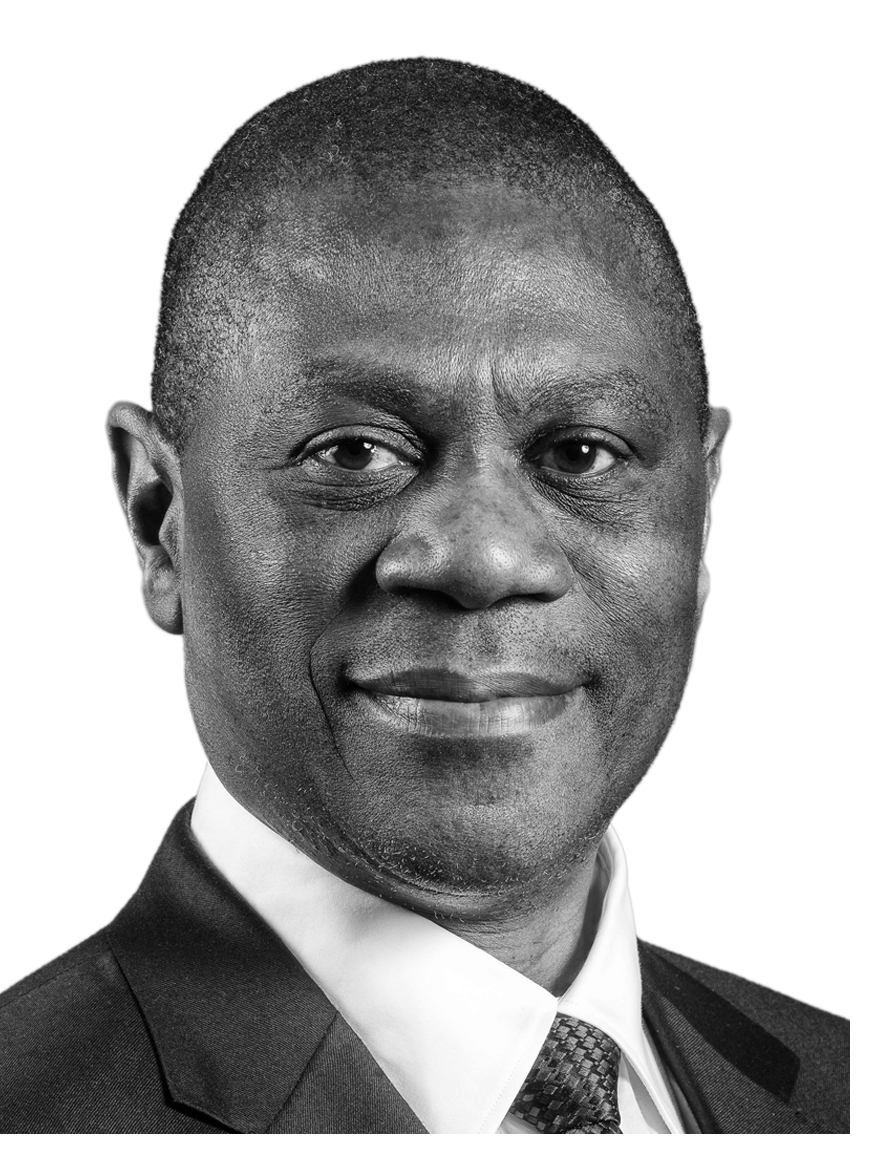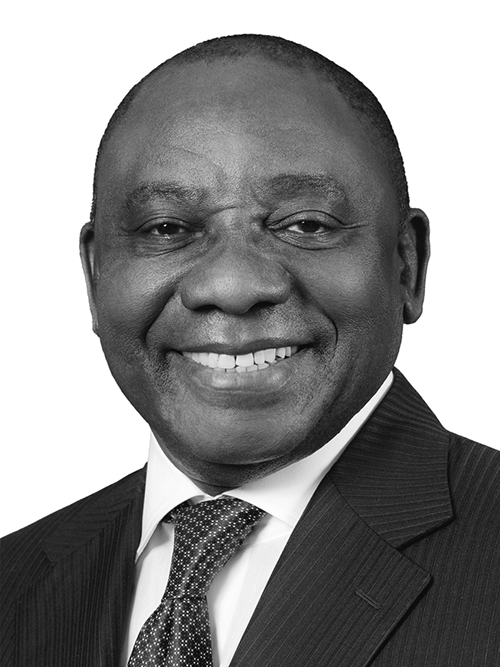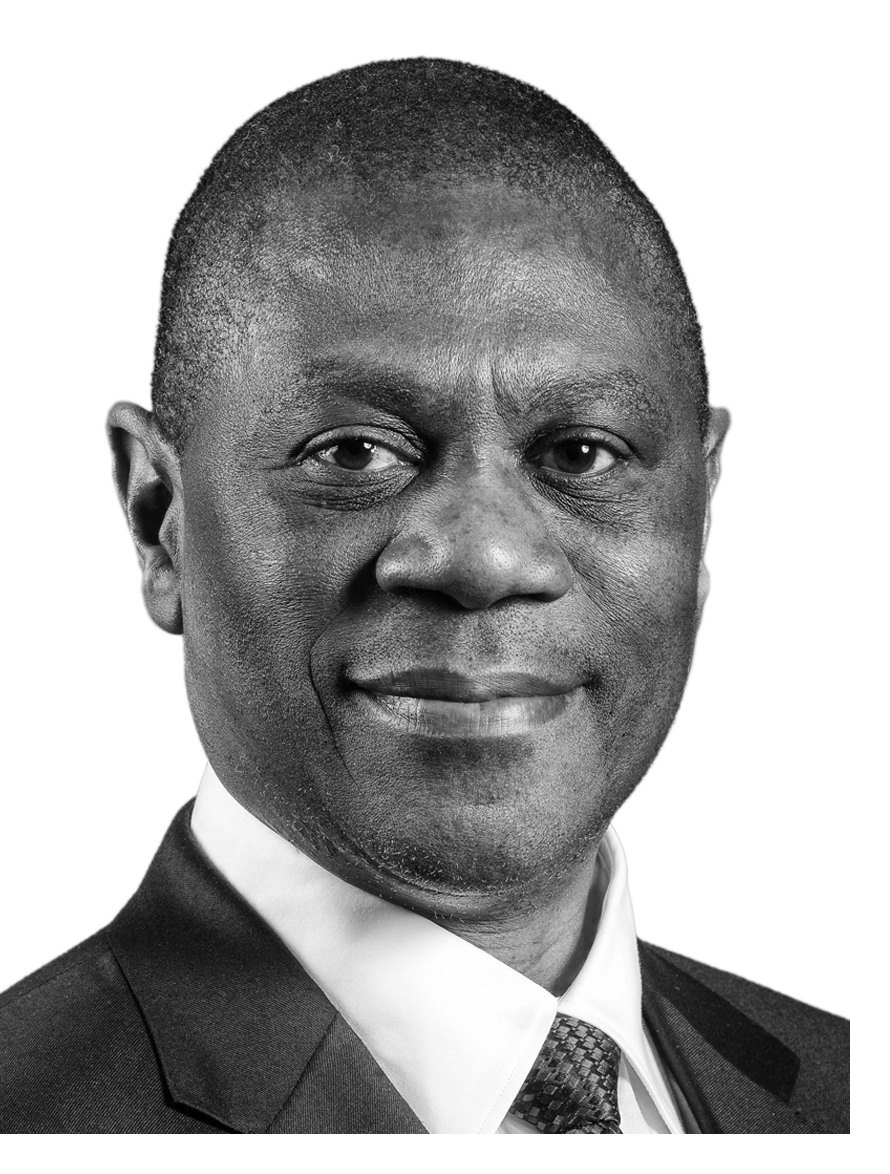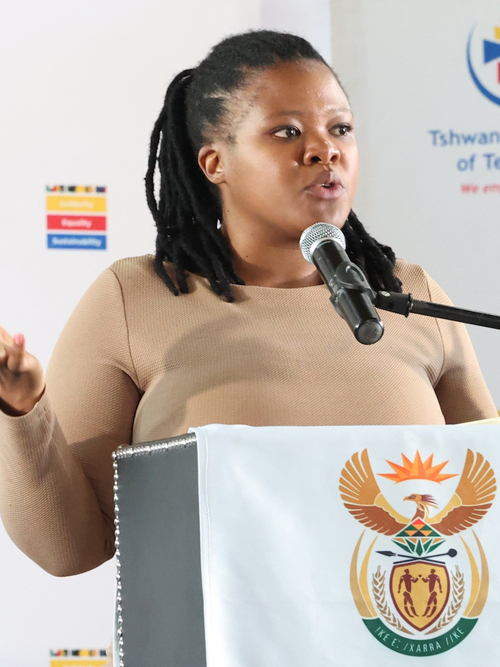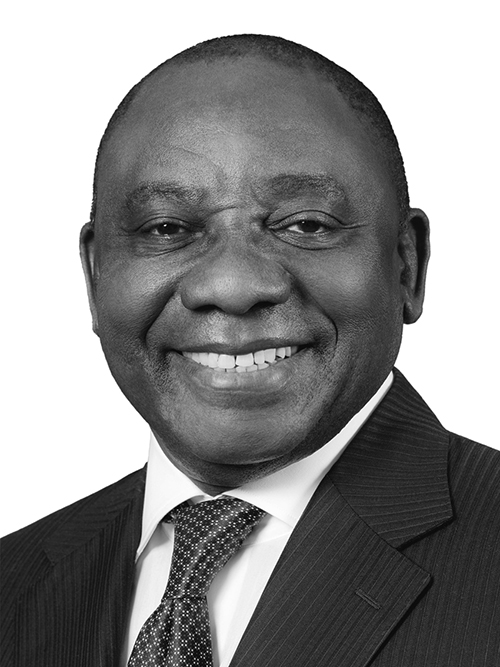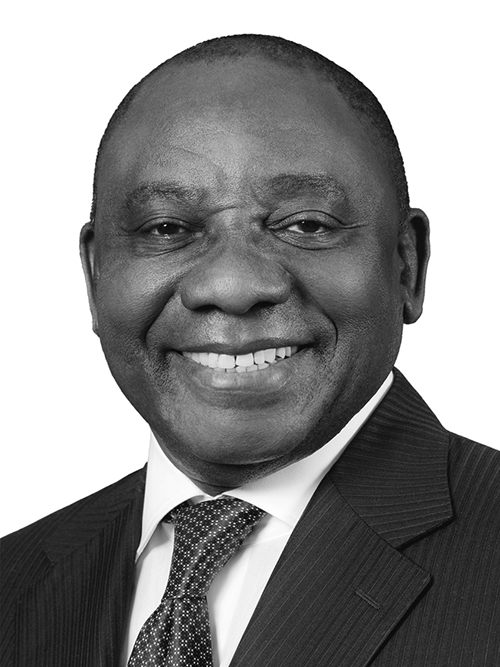Assistant Dean, Dr Ramollo,
GCIS Acting DDG, Mr Sandile Nene,
TUT Faculty Members and Students,
Distinguished guests,
Ladies and gentlemen,
It is indeed an honour and a privilege to have been entrusted to share some thoughts on South Africa’s Presidency of the Group of Twenty, commonly known as the G20.
Today’s engagement is also crucial as institutions of higher learning play a vital role in thought leadership, shaping public policy and discourse.
Being among South Africa’s biggest residential universities, the Tshwane University of Technology has a vital role to play in producing future leaders who will propel South Africa’s developmental agenda.
Fellow compatriots,
Before getting into our subject matter, it is important to give a bit of back of block. So firstly, what is the G20, when and why was it founded?
The G20 was formed in 1999 after the Asian financial crisis of 1997–1998 as an informal forum for the Finance Ministers and Central Bank Governors of the most important industrialised and developing economies to discuss international economic and financial stability.
The forum initially focused largely on broad macroeconomic issues, but it has since expanded its agenda to inter-alia include trade, climate change, sustainable development, health, agriculture, energy, environment, climate change, and anti-corruption.
It comprises 19 countries (Argentina, Australia, Brazil, Canada, China, France, Germany, India, Indonesia, Italy, Japan, Republic of Korea, Mexico, Russia, Saudi Arabia, South Africa, Türkiye, United Kingdom, and United States) and two regional bodies, namely the European Union (EU) and African Union (AU).
The G20 members represent around 85% of the global Gross Domestic Product, over 75% of the global trade, and about two-thirds of the world population.
The G20 was upgraded to the level of Heads of State/Government in the wake of the global economic and financial crisis of 2007, and in 2009, when it became apparent that the necessary crisis coordination would only be possible at the highest political level.
Since then, the G20 Leaders have met regularly, and the G20 has become the premier forum for international economic cooperation.
The primary focus of the forum is to increase multilateral cooperation for the recovery of the global economy, bring stability to the global financial system, promote long-term sustainable growth and strengthen global economic governance.
Since President Ramaphosa took over the Presidency of the G20 in December 2024, a lot of public discourse has already gone into what this could potentially mean for South Africa particularly in a post-COVID 19 era where developing economies are still on a path to recovery.
More importantly, what does this mean for the ordinary South African who will not sit at the Leaders’ Summit when South Africa hosts the G20 Summit in November 2025?
Programme Director,
South Africa will hold the presidency of the G20 until 30 November 2025, and our theme is “Solidarity, Equality, and Sustainability.”
We will use the G20 to focus on inclusive and sustainable economic growth that benefits our citizens. Through the G20 Presidency, we will foster inclusive economic growth, industrialisation and employment.
This Presidency is about demonstrating that our country is open for business. South Africa is an attractive destination for business services, and has sophisticated digital infrastructure, including mobile networks and high-speed broadband.
On the economic front, the G20 will provide a massive boost, especially in areas such as tourism and hospitality. The over 200 expected G20 related meetings have already commenced in our country presenting opportunities for the country’s tourism, manufacturing, trade and other investment growth.
A major focus area will be using the G20 to find solutions to tackle food security and hunger.
We are also intently focusing on youth employment, closing the gender gap, reducing inequality and protecting the environment.
The G20 will unlock new possibilities in Artificial Intelligence (AI), which has the potential to provide unprecedented economic and social opportunities.
Even as we meet today, the wheels of the G20 are churning. Since officially assuming the G20 Presidency on 1 December 2024, South Africa has convened 51 meetings across all the Sherpa Tracks and Finance Track Working Groups.
These meetings are results focussed and have discussed some of the most important and urgent challenges facing the global community. They reflect our strong determination to seek sustainable and innovative solutions through dialogue, collaboration and cooperation.
Allow me just to give you a tiny insight into the many working parts of the G20. Thus far the following meetings have been held during the month of May:
- The G20 Financial Inclusion and Women Empowerment Conference on 6 to 9 May 2025 in the North West, sought to influence future G20 policy through the introduction of a Guidelines Framework for Mainstreaming Women’s Priorities, ensuring women’s financial empowerment remains central to global institutional and economic reforms.
- The Second G20 Culture Working Group session held on 5 and 6 May 2025 in Gauteng discussed shaping global cultural policies with far-reaching social and economic implications. It focused on aligning priorities to Agenda 2063, the UN Sustainable Development Goals and protecting heritage as a human right.
- The Third Health Working Group Meeting, held virtually on 8 and 9 May 2025, focused on the healthcare workforce, which is the foundation for health systems and the achievement of universal health coverage, health security, equity, and inclusive growth. Participants further discussed increasing investment and promoting digital and technological innovation in the health sector.
- The Second Tourism Working Group Meeting held from 11 to 13 May 2025 in KwaZulu-Natal deliberated on the G20 tourism priorities to drive sustainable tourism growth among the member countries and the development of a G20 Tourism Action Plan.
Fellow compatriots,
The G20 is a massive undertaking and provides an unparalleled opportunity for our nation and the continent. Every successful meeting we host between now and the G20 Summit further cements South Africa as a force in the global arena.
It also allows us to champion development issues and to prioritise the concerns of Africa and developing countries in the G20.
We are therefore determined to ensure that our G20 presidency will support the advancement of Africa’s development. The inclusion of the AU in the G20 was a massive step for the continent and has allowed Africa to show the world that we are a force to be reckoned with.
As such, the AU priorities for the G20 are all focussed on building Africa into a major player in the global arena. These priorities include achieving the Agenda 2063 and its Second Decade of Action, and the UN Sustainable Development Goals. Another major priority for the AU is the reform of the international financial architecture.
A further priority of the AU is focussed on international food security and agriculture, which are high on the agenda of the G20 working groups. The AU has also rightly focussed on the Just Energy Transition, renewable energy and climate action as African priorities for an African G20.
Student and Future leaders,
Your interest in the G20 is not only timely, it is essential. The G20 is more than a forum of global leaders; it is a living case study of multilateral cooperation, economic diplomacy, and governance in action.
It offers invaluable insights into how nations collaborate to address complex global challenges such as financial instability, climate change, inequality, and development.
For aspiring public servants and policy professionals, the G20 provides a lens through which to understand the real-world implications of international policy decisions and the critical role that effective, ethical, and inclusive public administration plays in shaping them.
South Africa’s presidency presents a unique opportunity for students to witness and engage with global governance at work and to imagine how their own leadership might contribute to building a more just and sustainable world.
Before I conclude, it would be amiss of us to speak about South Africa’s G20 Presidency without reflecting on the current impasse between South Africa and the United States of America, as we will be handing over the G20 Presidency to the US in November.
As announced by The Presidency this week, President Ramaphosa is currently on a working visit to the USA where he will be meeting with President Trump next week.
We are confident that this meeting will not only clarify the misinformation that has been spread about our country by forces opposed to transformation, but also allow for a smooth handover of South Africa’s G20 Presidency to the US Presidency in November.
In closing, we hope to given you a better understanding of the inner workings of the G20 and how South Africa and the continent is working in tandem to use the G20 to create a better Africa, and a better world.
I look forward to the discussions that are sure to flow from this and to hear your thoughts and insights. It has been an absolute pleasure to be in your company today.
I thank you.




